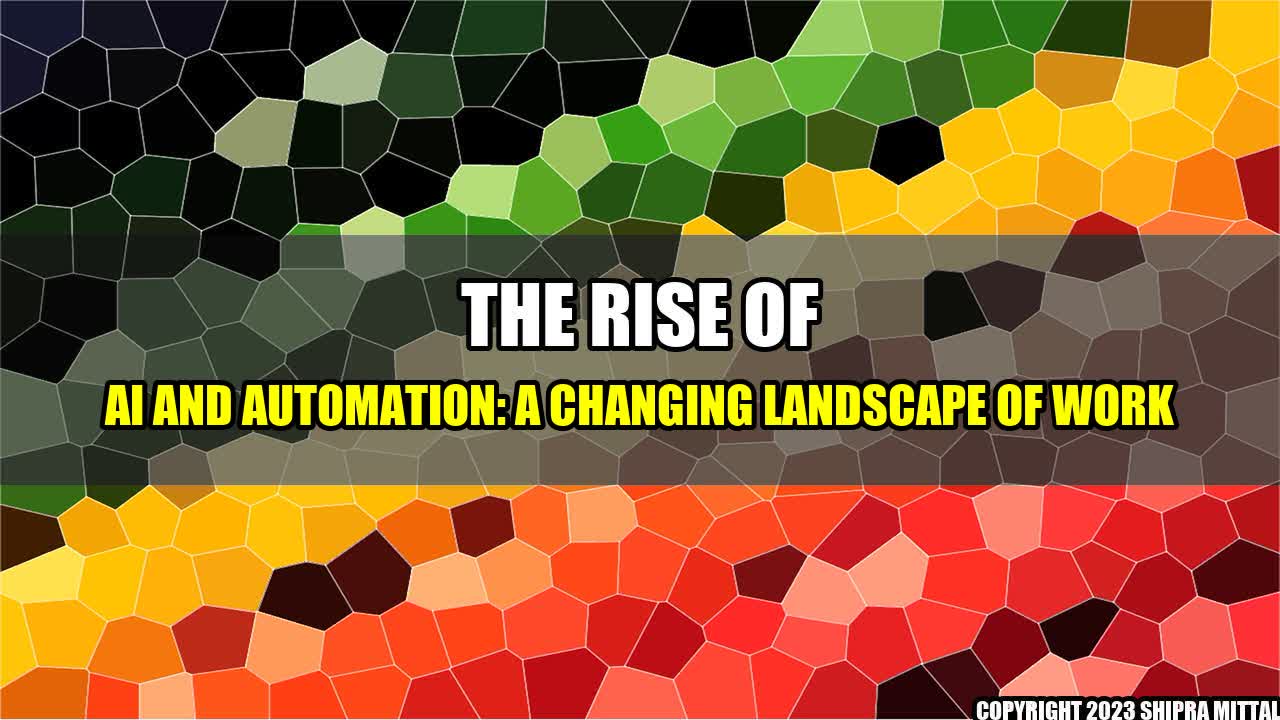
Imagine a world where robots and machines do most of the work, leaving humans with more leisure time and less stress. Sounds like a utopian dream, but it's actually happening right now.
In recent years, advancements in AI and automation have revolutionized the way we work and live. From self-driving cars to chatbots, from virtual assistants to smart homes, these technologies have become an integral part of our daily lives.
However, the rise of AI and automation has also led to concerns about the future of work. What will happen to all those jobs that are being automated? How will humans cope with the changing nature of work?
Let's take a look at some real-life examples to understand the impact of AI and automation:
The rise of AI and automation is expected to have a significant impact on the job market. According to a report by the World Economic Forum, 5 million jobs will be lost by 2020 due to advances in AI, robotics, and other technological changes.
However, this doesn't necessarily mean that all jobs will be automated. Instead, some jobs will require new skills and knowledge, such as data analysis, programming, and design.
The rise of AI and automation presents both opportunities and challenges for the future of work. While some jobs may be lost, new ones will emerge, and humans will be required to adapt and upskill.
As technology continues to evolve, it's important for individuals and companies to stay informed and prepared for the changing landscape of work.
Technology
Akash Mittal
Akash Mittal Tech Article
Share on Twitter Share on LinkedIn